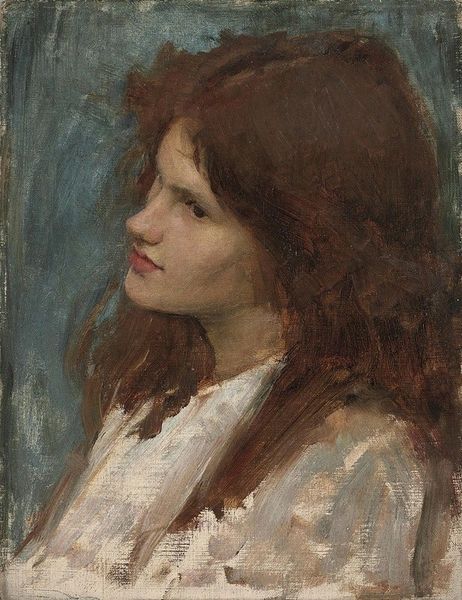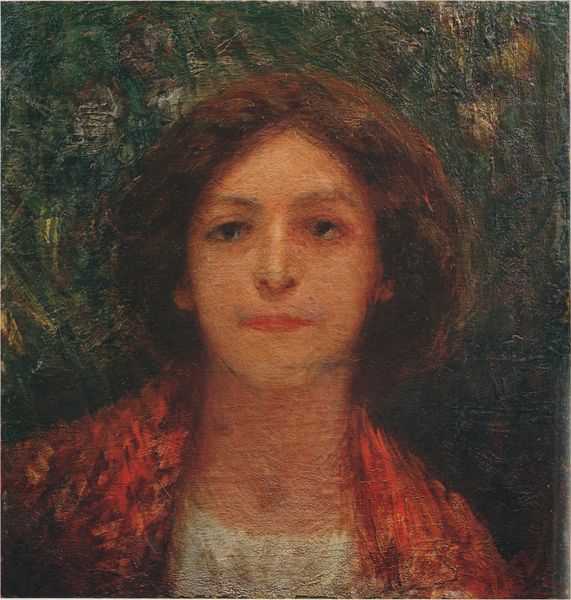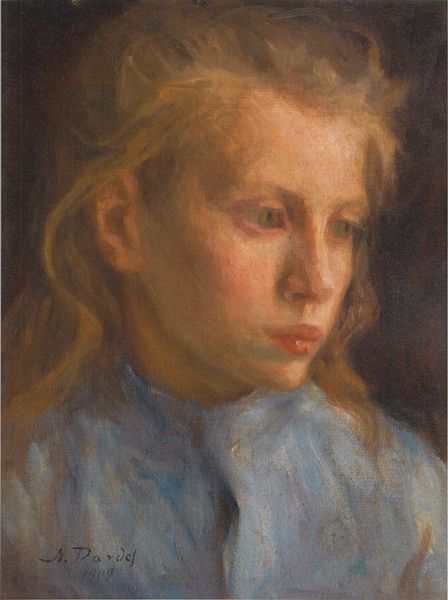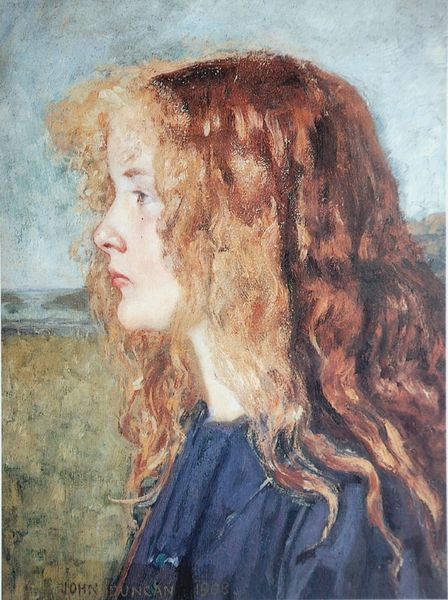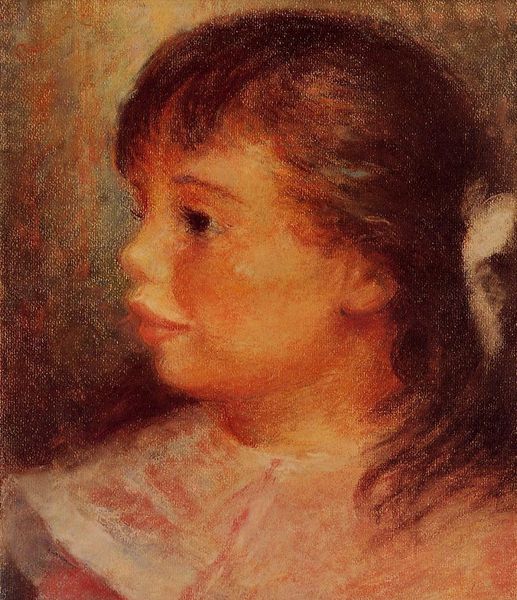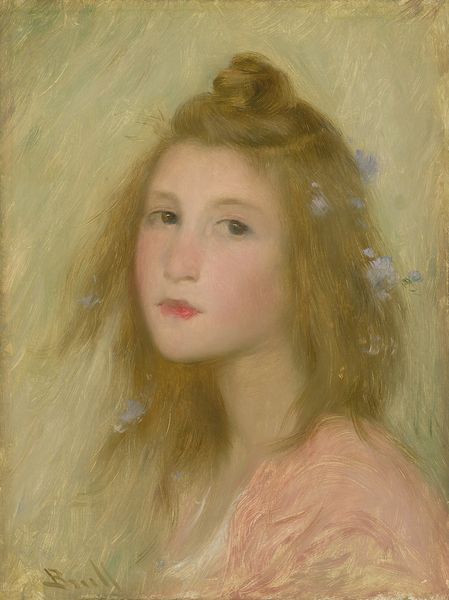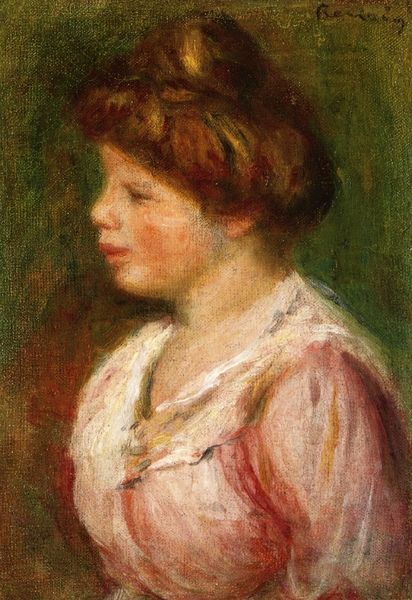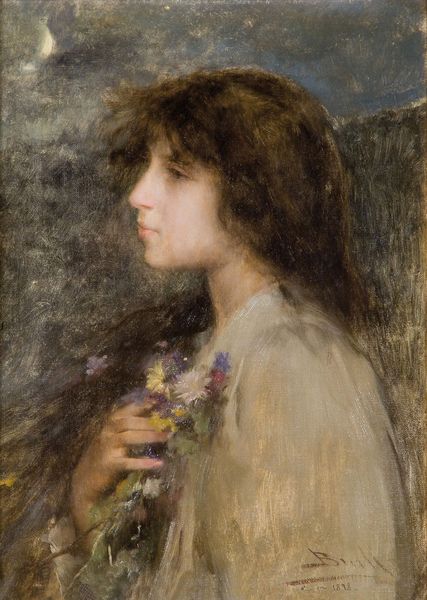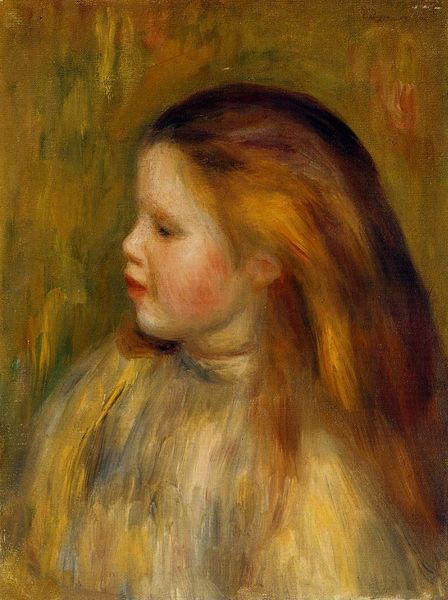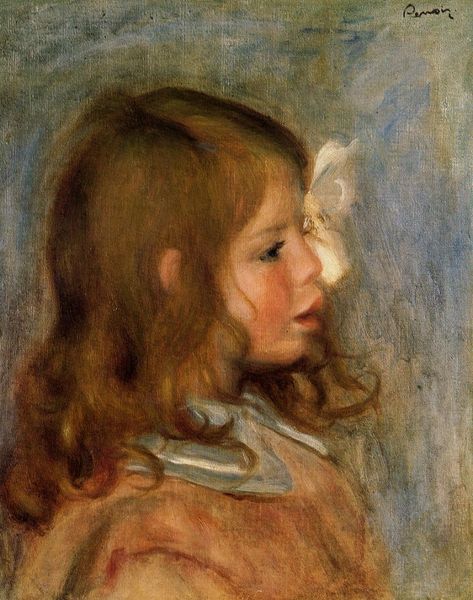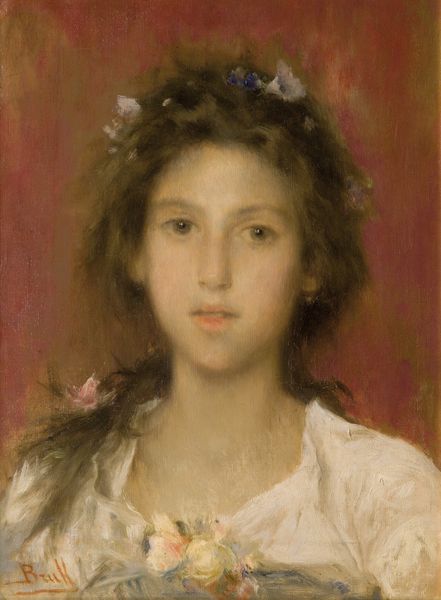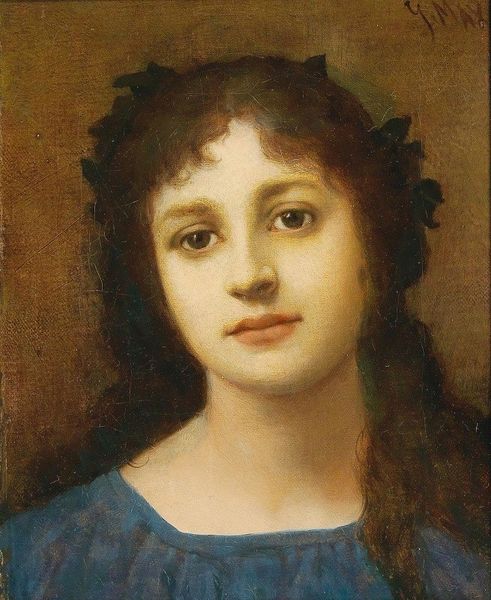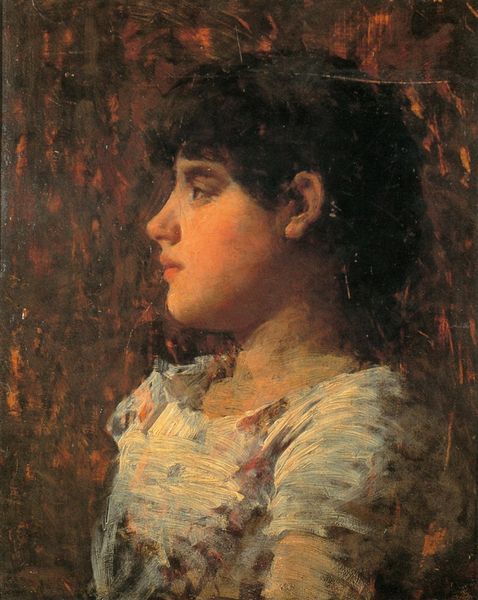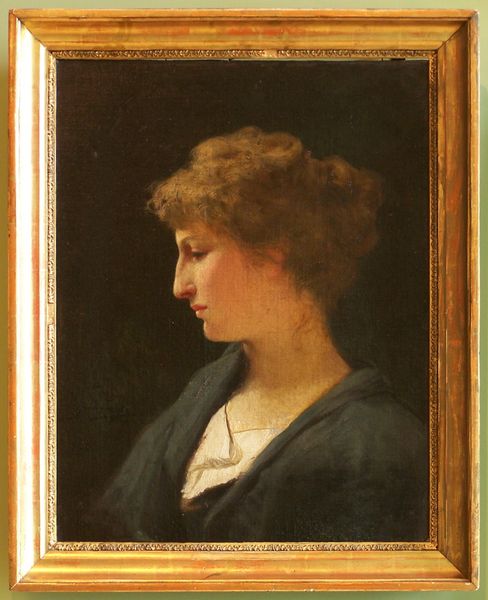
painting, oil-paint
#
portrait
#
head
#
face
#
painting
#
impressionism
#
oil-paint
#
figuration
#
portrait reference
#
portrait head and shoulder
#
animal portrait
#
animal drawing portrait
#
nose
#
portrait drawing
#
facial portrait
#
lady
#
portrait art
#
female-portraits
#
fine art portrait
#
celebrity portrait
#
digital portrait
Copyright: Public domain
Editor: This is Henri Martin's "Sketch of a Young Girl" from 1888. It’s an oil painting, and the brushstrokes feel very light and airy. The texture of the paint almost looks chalky to me. How do you interpret this work through its materiality and the means of its production? Curator: Looking at it through a materialist lens, the materiality of this piece speaks volumes about late 19th-century artistic production. The oil paint itself, commercially available at this point, signals a shift in how artists accessed and used materials. Instead of grinding their own pigments, Martin could purchase premixed colors, allowing for a different kind of labor – focusing less on preparation and more on application and artistic expression. How do you think the accessibility of these materials impacted the subject matter, beyond portraiture in general? Editor: That's fascinating. So, the industrial production of paint might have democratized art in a way? Maybe the relative cheapness of materials compared to earlier centuries is why the artist may choose this subject: a young girl, a 'sketch' – more intimate and everyday? It moves away from purely representing wealthy patrons. Curator: Precisely. Consider the "sketch" aspect as well. Oil sketches, increasingly popular, became spaces for exploring color, form, and technique – a space between a study and a 'finished' work, and one readily saleable for rising middle-class consumer markets, opening artists up to less formalized, sometimes quicker methods, than previous art-world economies and social structures allowed for. Do you see that informal process reflected in her depiction? Editor: Absolutely. The looseness in the brushwork, particularly around the edges of her hair and dress, contrasts with the more defined facial features, which could highlight the artist's skill and creative decisions but also the different market possibilities they now faced. I hadn’t considered how the business of making art could dictate the choice of medium. Curator: Exactly. We can read the texture, the brushstrokes, the commercially produced paint, as remnants of the systems of artistic production, exchange, and new modes of economic survival impacting this piece. It enriches the way we view this fleeting sketch. Editor: Thanks! That materialist approach gave me a whole new perspective.
Comments
No comments
Be the first to comment and join the conversation on the ultimate creative platform.
